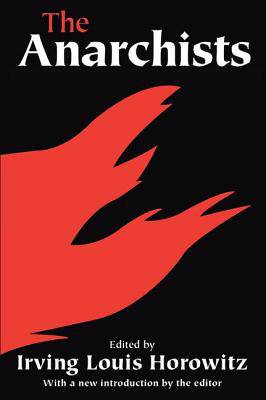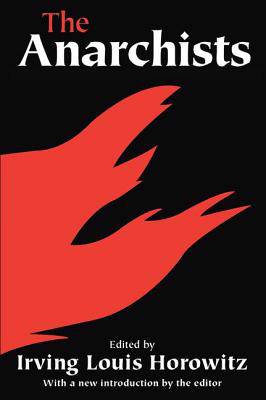
- Afhalen na 1 uur in een winkel met voorraad
- Gratis thuislevering in België vanaf € 30
- Ruim aanbod met 7 miljoen producten
- Afhalen na 1 uur in een winkel met voorraad
- Gratis thuislevering in België vanaf € 30
- Ruim aanbod met 7 miljoen producten
Zoeken
Omschrijving
In his new introduction to The Anarchists, Horowitz points out that anarchism is an ideology in search of a movement, and also a psychology in search of a polity. While this seems to be a paradox, the fact is that anarchism has more than one hundred thousand entries on electronic search engines, but one can search high and low for a society that embraces its essential anti-Statist vision. At the same time, anarchism continues to attract people to its premises, seemingly generation after generation. Despite similarities in values and goals, anarchism seems especially attractive to those for whom individualism rather than collectivism provides a way of life. In this, it stands at the opposite pole from Behemoth, from the gods of political order. The Anarchists is a rich collection of theories and practices in the words of those who have rebelled against the restrictive institutions and oppressive conditions imposed by state power upon the individual. Idealists and self-seekers, saints and assassins, they have often served as the conscience of the world and have expressed with eloquence and convictions, the deep-seated sense of anarchy that resides, to a greater or lesser degree, in most human beings.Anarchism is not simply a European import; it is deeply rooted in the American political experience. The volume gives strong representation to this side of the anarchist tradition. Thomas Paine wrote, "Government even in its best state is but a necessary evil. This was a sentiment echoed by Ralph Waldo Emerson, who said, "the less government we have the better." The Anarchists offers the most thoughtful and comprehensive selection of writings by and about those who protest against all rule by man over man, particularly that embodied in the State. As such, this anthology presents the history and philosophy of anarchism in the words of thirty-five of its greatest students, observers, and proponents.
Specificaties
Betrokkenen
- Auteur(s):
- Uitgeverij:
Inhoud
- Aantal bladzijden:
- 660
- Taal:
- Engels
Eigenschappen
- Productcode (EAN):
- 9780202307688
- Verschijningsdatum:
- 30/04/2005
- Uitvoering:
- Paperback
- Formaat:
- Trade paperback (VS)
- Afmetingen:
- 154 mm x 229 mm
- Gewicht:
- 929 g

Alleen bij Standaard Boekhandel
+ 210 punten op je klantenkaart van Standaard Boekhandel
Beoordelingen
We publiceren alleen reviews die voldoen aan de voorwaarden voor reviews. Bekijk onze voorwaarden voor reviews.








